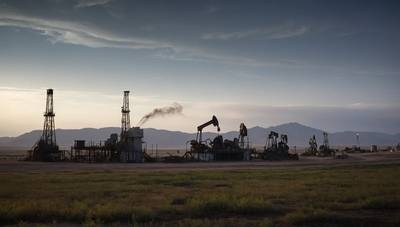US oilfield service firms prepare for earnings to be affected by tariffs
The results next week should provide an insight into how the top three oilfield service companies in the world are dealing with the uncertainty caused by the U.S. trade tariffs and the recent drop in oil prices.
Donald Trump campaigned on the slogan "drill, baby drill" to increase U.S. production of oil and gas. However, his extensive levies sparked a global trading war and raised concerns about demand destruction.
Brent crude is hovering around $66.65 per barrel. It was as low as $58.40 a barrel on April 9, but has since recovered to a price of $66.65. The OPEC+'s promise of higher crude production has also pushed down prices.
This has led to a reduction in upstream expenditure, especially in U.S. Shale, where producers prioritize shareholder returns and debt repayment over output growth.
Analysts warn that a further decline in oil prices - particularly a sustained fall below $60 per barrel - and the uncertainty surrounding tariffs could result in a 20% reduction in domestic oilfield activities from their current levels.
Stephen Gengaro is an analyst at Stifel. He said that if activity levels were to drop, E&P expenditures would also fall. E&P is the main driver of demand in service companies.
Morningstar analysts estimate for every $5 drop in crude oil prices, U.S. spending on shale gas will fall by about 5%. This compares to just a 1 percent dip in the international markets.
The U.S. tariffs against steel and aluminum imports will also increase the costs of oilfield services companies.
Halliburton, Baker Hughes and SLB will begin reporting earnings in the sector on 22 April.
LSEG data shows that since January, the earnings per share expectation for the Big Three oilfield service providers has been revised several times.
Analysts expect an average earnings per share for Halliburton of 60 cents compared to 76 cents one year ago, 48 cents from Baker Hughes, compared to 43 cents and 74 cents from SLB, versus 75 cents during the same quarter in 2024.
Baker Hughes reported the U.S. Oil and Gas Rig Count fell by seven, to 583 during the week ending April 11, the largest weekly decline since June 2023.
Investors will closely monitor the comments of executives for clarity, especially in a situation with little visibility near-term.
Scott Gruber is an energy analyst with Citi Research.
All eyes are on the future as we assess the direction of the oil services market. Reporting from Bengaluru by Vallari Srivastava, writing by Mrinalika Ro; editing by Sriraj Kalluvila
(source: Reuters)




